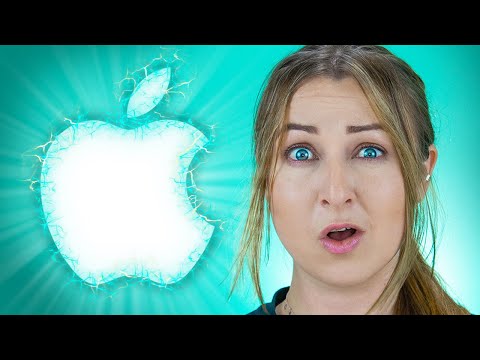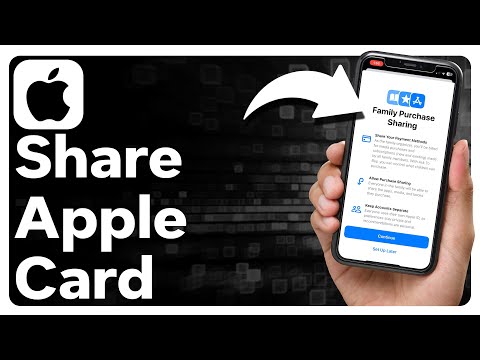How does Apple prioritize user data privacy in its advertising and marketing practices?
How does Apple prioritize user data privacy in its advertising and marketing practices? As an authority on the subject, I will delve into this topic and provide you with a detailed analysis. In today’s digital age, data privacy has become a significant concern for users worldwide. Many tech companies have faced scrutiny over their handling of user data, but Apple has consistently positioned itself as a champion of privacy. So, let’s explore how Apple prioritizes user data privacy in its advertising and marketing practices.
1. Transparency in Privacy Policies: Apple recognizes the importance of transparency and provides detailed privacy policies that outline how user data is collected, used, and protected. By clearly stating their privacy practices, Apple ensures that users are aware of how their data is being handled.
2. Privacy by Design: Apple follows a “privacy by design” approach, meaning that privacy considerations are incorporated into the design and development of their products and services from the ground up. This approach ensures that user privacy is a fundamental aspect of Apple’s offerings.
3. Minimal Data Collection: Apple strives to collect only the necessary data to provide its services effectively. They prioritize minimizing the collection of user data, which helps reduce potential risks associated with data breaches or misuse.
4. Differential Privacy: Apple employs advanced techniques such as differential privacy to protect user privacy while still gaining insights from aggregated data. Differential privacy adds noise to data sets, making it difficult to identify individual users while still allowing for valuable analysis.
5. App Store Privacy Labels: In December 2020, Apple introduced privacy labels on its App Store, providing users with a clear overview of the data that apps collect. This transparency empowers users to make informed decisions about which apps they trust with their data.
6. App Tracking Transparency: With the release of iOS 14.5, Apple introduced the App Tracking Transparency feature. This feature requires app developers to obtain explicit user consent before tracking their data across apps and websites owned by other companies. This move gives users more control over their data and prevents indiscriminate tracking.
7. Intelligent Tracking Prevention: Apple’s Safari browser incorporates Intelligent Tracking Prevention, which blocks third-party trackers from collecting user data across different websites. This feature enhances user privacy by limiting the ability of advertisers to track users’ online activities.
8. Limiting Ad Targeting: Apple restricts the use of personal data for ad targeting purposes. They prioritize user privacy by minimizing the amount of personal information shared with advertisers, preventing overly personalized and invasive advertisements.
9. Strong Encryption: Apple places a strong emphasis on encryption to protect user data. For example, all data stored on iPhones and iPads is encrypted, and Apple does not have the ability to decrypt it. This ensures that even if a device is lost or stolen, the data remains secure.
10. Data Security Measures: Apple employs robust security measures to safeguard user data. These measures include regular software updates to address vulnerabilities, hardware-level security features, and rigorous security audits of their products and services.
In conclusion, Apple prioritizes user data privacy in its advertising and marketing practices through measures such as transparency, minimal data collection, privacy by design, differential privacy, app tracking transparency, intelligent tracking prevention, limiting ad targeting, strong encryption, and data security measures. By implementing these practices, Apple sets a high standard for privacy protection in the tech industry and demonstrates its commitment to safeguarding user data.
Unveiling Apple’s Commitment to Privacy: A Closer Look at the Tech Giant’s Prioritization Efforts
Unveiling Apple’s Commitment to Privacy: A Closer Look at the Tech Giant’s Prioritization Efforts
1. Apple’s Transparent Approach: Unlike many tech companies that prioritize targeted advertising and data collection, Apple takes a different approach. The company prioritizes user data privacy by placing a strong emphasis on transparency. Apple ensures that users are fully aware of how their data is being collected, used, and protected. Through its advertising and marketing practices, Apple clearly communicates its commitment to privacy, making it a key selling point for its products and services.
2. Privacy as a Core Value: Apple firmly believes that privacy is a fundamental human right. This belief is reflected in the company’s advertising and marketing efforts. Apple consistently highlights its commitment to protecting user data and ensuring that it remains private and secure. By making privacy a core value, Apple aims to build trust and loyalty with its customers, positioning itself as a leader in the industry when it comes to data privacy.
3. User Control and Consent: Apple prioritizes user control and consent when it comes to data collection and usage. The company provides users with granular control over their privacy settings, allowing them to choose what data they share and with whom. Apple’s advertising and marketing practices emphasize this aspect, showcasing how users have the power to decide how their data is handled. By giving users control and obtaining their consent, Apple demonstrates its commitment to respecting user privacy.
4. Encryption and Security: Another key aspect of Apple’s commitment to privacy is its focus on encryption and security. The company employs robust encryption methods to protect user data, making it difficult for unauthorized parties to access or decipher. Apple’s advertising and marketing efforts highlight the strength of its encryption technologies, reassuring users that their data is safe and secure. This emphasis on encryption and security further reinforces Apple’s commitment to privacy.
5. Minimized Data Collection: Apple takes a minimalist approach to data collection, only collecting the necessary information to provide its services. This approach sets Apple apart from other companies that often engage in extensive data collection for targeted advertising purposes. Apple’s advertising and marketing practices emphasize this minimalistic approach, highlighting how the company prioritizes the privacy of its users by minimizing data collection.
6. App Store Review Process: Apple’s commitment to privacy extends beyond its own products and services. The company enforces strict privacy guidelines for apps available on the App Store, ensuring that user data is protected even when using third-party applications. This dedication to privacy is showcased in Apple’s advertising and marketing, emphasizing how users can trust the apps available on the App Store to prioritize their privacy.
In conclusion, Apple prioritizes user data privacy in its advertising and marketing practices through a transparent approach, making privacy a core value, emphasizing user control and consent, focusing on encryption and security, minimizing data collection, and enforcing privacy guidelines for apps on the App Store. By doing so, Apple sets itself apart as a tech giant that prioritizes the privacy and security of its users’ data.
Unveiling Apple’s Fortified Privacy Shield: How the Tech Giant Safeguards User Data
Unveiling Apple’s Fortified Privacy Shield: How the Tech Giant Safeguards User Data
1. Encryption: Apple prioritizes user data privacy by implementing strong encryption techniques. The company uses advanced encryption algorithms to protect user data stored on its devices, such as iPhones and iPads. This means that even if someone gains unauthorized access to the device, they won’t be able to access the encrypted data without the user’s passcode or biometric authentication.
Apple’s encryption methods ensure that user data remains secure and inaccessible to anyone without proper authorization.
2. Differential Privacy: Apple employs a technique called differential privacy to collect user data for improving its services while maintaining privacy. Differential privacy adds noise to the collected data, making it difficult to identify specific individuals. This ensures that user data remains anonymous and cannot be linked back to a particular user. By using differential privacy, Apple can gather valuable insights from user data without compromising individual privacy.
3. App Store Privacy Labels: Apple has introduced privacy labels on its App Store, providing users with transparent information about the data that apps collect and how it is used. These labels give users a clear understanding of an app’s privacy practices before they download it. This empowers users to make informed decisions about which apps they want to trust with their data, further enhancing user data privacy.
4. Enhanced Safari Privacy: Apple’s Safari browser is designed with enhanced privacy features to protect user data while browsing the internet. It blocks cross-site tracking, preventing advertisers from tracking users’ online activities across different websites. Safari also intelligently prompts users to choose whether they want to share their approximate location with websites, giving users more control over their data.
5. Secure Sign-In: Apple offers a secure sign-in feature, allowing users to log in to apps and websites using their Apple ID without sharing personal information. This feature ensures that users can access services without compromising their privacy. Apple generates a unique random email address for each app or website, acting as a middleman and protecting users’ real email addresses from being shared or sold to third parties.
6. Transparency and Control: Apple believes in giving users control over their own data. The company provides extensive privacy settings, allowing users to customize their privacy preferences and manage which apps have access to their data. Users can view and control which apps have requested access to various types of data, such as location, camera, or microphone. This transparency and control empower users to protect their data and only share it with trusted apps and services.
7. Strong Data Protection Measures: Apple implements strict data protection measures to safeguard user data. This includes secure data transmission protocols, secure data storage, and regular security audits. Apple’s commitment to data protection ensures that user data is protected from unauthorized access and breaches.
8. Privacy-Focused Services: Apple develops its services with a strong focus on user privacy. For example, Apple Pay allows users to make secure payments without sharing credit card details with merchants. iCloud ensures that user data is securely stored and synchronized across devices. These privacy-focused services demonstrate Apple’s commitment to protecting user data throughout its ecosystem.
In conclusion, Apple prioritizes user data privacy through various measures such as encryption, differential privacy, App Store privacy labels, enhanced Safari privacy, secure sign-in, transparency and control, strong data protection measures, and privacy-focused services. These efforts ensure that users can trust Apple with their data, knowing that their privacy is safeguarded.
Decrypting Apple’s Motive: Unveiling the Key Reasons Behind Their Emphasis on Privacy
Decrypting Apple’s Motive: Unveiling the Key Reasons Behind Their Emphasis on Privacy
1. Apple’s Focus on User Data Privacy: A Core Value
– Apple has made user data privacy a core value and a key selling point in its advertising and marketing practices. The company emphasizes that privacy is a fundamental human right and that they are committed to protecting their users’ personal information.
– In their marketing campaigns, Apple highlights how they prioritize user privacy by implementing strong security measures, such as end-to-end encryption and secure data storage. They also emphasize that they do not sell user data to third parties and aim to minimize the collection of user information whenever possible.
2. Building Trust and Customer Loyalty
– By prioritizing user data privacy, Apple aims to build trust and foster customer loyalty. In an era where data breaches and privacy concerns are prevalent, Apple’s emphasis on privacy appeals to consumers who are increasingly concerned about the security of their personal information.
– Apple’s commitment to privacy is not just a marketing strategy; it is reflected in their products and services. For example, features like “Sign in with Apple” allow users to sign in to apps and websites without sharing their personal information. This demonstrates Apple’s dedication to protecting user privacy and differentiates them from competitors who may rely on user data for targeted advertising or other purposes.
3. Differentiating Apple from Competitors
– Apple’s emphasis on privacy also serves as a way to differentiate themselves from their competitors in the tech industry. By positioning themselves as a company that prioritizes user privacy, they are able to set themselves apart from companies that have faced scrutiny for their data practices.
– This differentiation is particularly important for Apple, as they have positioned themselves as a provider of premium, high-quality products. Privacy is seen as an essential part of the Apple experience, and their commitment to protecting user data adds value to their brand image.
4. Compliance with Regulations and Standards
– Apple’s emphasis on privacy is not only driven by customer demand but also by regulatory requirements. With the implementation of data privacy regulations such as the General Data Protection Regulation (GDPR) and the California Consumer Privacy Act (CCPA), companies are increasingly required to protect user data and provide transparency in their data practices.
– By prioritizing user data privacy in their advertising and marketing practices, Apple is able to show their compliance with these regulations and position themselves as a company that takes privacy seriously. This helps them maintain a positive reputation and avoid potential legal issues related to data privacy.
5. A Proactive Approach to Privacy
– Apple’s emphasis on privacy can also be seen as a proactive approach to address potential future concerns. As technology continues to advance, the collection and use of personal data are likely to become even more prevalent. By establishing a strong stance on privacy now, Apple is positioning themselves ahead of the curve and demonstrating their commitment to protecting user data in the face of evolving technologies.
In conclusion, Apple’s emphasis on user data privacy in its advertising and marketing practices is driven by a combination of factors. It aligns with their core values, helps build trust and customer loyalty, differentiates them from competitors, ensures compliance with regulations, and showcases their proactive approach to privacy. By prioritizing user privacy, Apple aims to provide a secure and trusted experience for their customers, setting them apart in the tech industry.
In conclusion, Apple prioritizes user data privacy in its advertising and marketing practices through various measures. The company ensures that user data is anonymized and aggregated to protect individual identities. They also implement strict encryption protocols to safeguard sensitive information and regularly update their privacy policies to stay in line with evolving regulations.
**Frequently Asked Questions:**
**1. How does Apple protect user data in its advertising?**
Apple protects user data in advertising by anonymizing and aggregating it, ensuring that individual identities are not compromised.
**2. Does Apple use encryption to secure user data?**
Yes, Apple uses encryption to secure user data, implementing strict protocols to protect sensitive information from unauthorized access.
**3. How does Apple update its privacy policies?**
Apple regularly updates its privacy policies to align with changing regulations and to provide users with transparent information about how their data is used in advertising and marketing.
**4. Can users opt out of personalized advertising on Apple devices?**
Yes, Apple provides users with the option to opt out of personalized advertising on their devices through the “Limit Ad Tracking” feature in their privacy settings.
In conclusion, Apple’s commitment to user data privacy is evident in their advertising and marketing practices. Through anonymization, encryption, and regular policy updates, they strive to protect user information and ensure transparency in how it is used. By providing users with control over personalized advertising, Apple empowers individuals to make informed choices about their privacy. As technology continues to advance, Apple remains dedicated to upholding the highest standards of data protection for its users.


